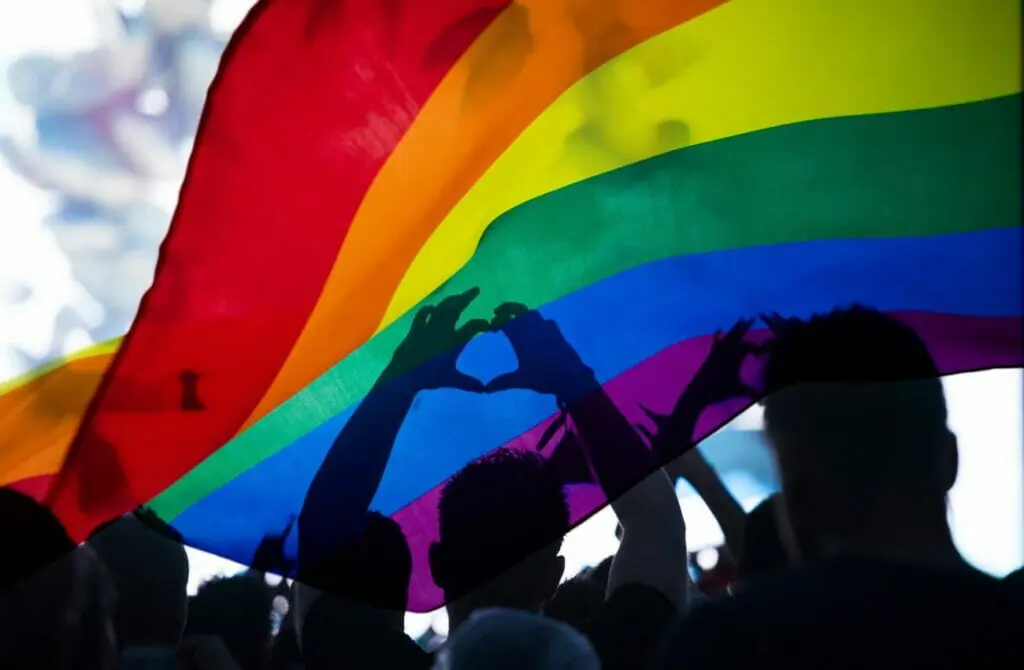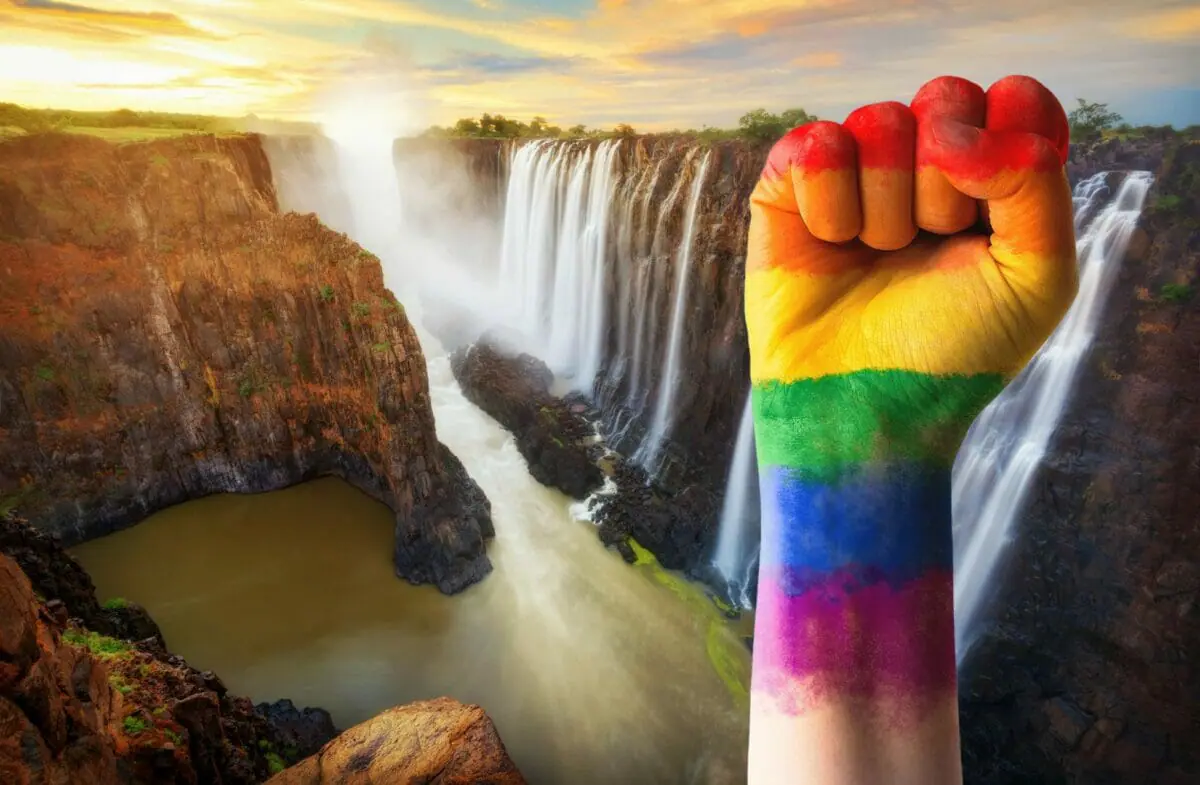LGBT rights in Zambia present a challenging landscape for both local individuals and tourists who identify as lesbian, gay, bisexual, or transgender. Consistent with the country’s strong anti-LGBT laws, same-sex sexual activity is considered illegal, with potential penalties including life in prison.
Furthermore, discrimination protections are lacking, and gay marriage is not legally recognized, exposing LGBT people to various risks and hardships in their daily lives. It is crucial to acknowledge that situations may change and information can become outdated; hence, anyone visiting Zambia or intending to support the cause must seek current advice and stay vigilant.
Local LGBT advocacy groups face significant hurdles, as the Law Association of Zambia (LAZ) has expressed that respecting LGBTI rights is implausible under the current legislation criminalizing same-sex acts. Consequently, those who engage in protecting LGBTI rights might also be subjected to penal sanctions. Tourists and locals alike ought to remain aware of these circumstances and take necessary precautions while in the country.
Although the general outlook on LGBT rights in Zambia might seem unfavorable at present, the situation has the potential to evolve. Those concerned about the rights and well-being of LGBT individuals in the region should stay informed about current developments and support reputable advocacy groups to raise awareness and pursue improvements.
Remembering that the climate can change quickly and bad actors will always exist, it is imperative to remain cautious and up-to-date on the local situation for LGBT rights in Zambia.


History of LGBT Rights In Zambia
Zambia’s history of LGBT rights dates back to British colonial rule, which introduced sodomy laws that criminalized homosexuality in the country. These laws persisted even after Zambia gained its independence in 1964.
In more recent years, Zambia has maintained a harsh reputation regarding the rights and treatment of LGBT individuals. Same-sex sexual activity remains illegal under Sections 155 and 156 of Zambia’s penal code, which classifies consensual same-sex acts as “unnatural offenses” and “gross indecency.” Penalties upon conviction range from 15 years to life imprisonment.
There have been notable instances of persecution against the LGBT community in Zambia. In 2019, a gay couple, Japhet Chataba and Steven Samba were sentenced to 15 years in prison for engaging in “acts against the order of nature.” This sentencing sparked an international outcry and prompted criticism from local and international human rights organizations. Zambia’s Lusaka High Court eventually pardoned the couple in 2020.
Despite the nation’s strict legislation, there are NGOs and human rights advocates working to challenge the anti-gay bias and improve the situation for LGBT individuals in Zambia. However, President Edgar Lungu and the judiciary have consistently upheld these oppressive laws, creating an environment of fear for the LGBT community.
For those traveling to Zambia, it is crucial to be aware of the current sociopolitical situation, especially for members of the LGBT community. As circumstances can change rapidly and there are always potential threats from bad actors, it is vital to seek updated advice before making travel arrangements.
Local LGBT advocacy groups can provide support and resources for individuals seeking more information about the rights and protection of the LGBT community in Zambia. Despite ongoing challenges, these groups continue to work towards the ultimate goal of decriminalization and the improvement of human rights for all citizens.
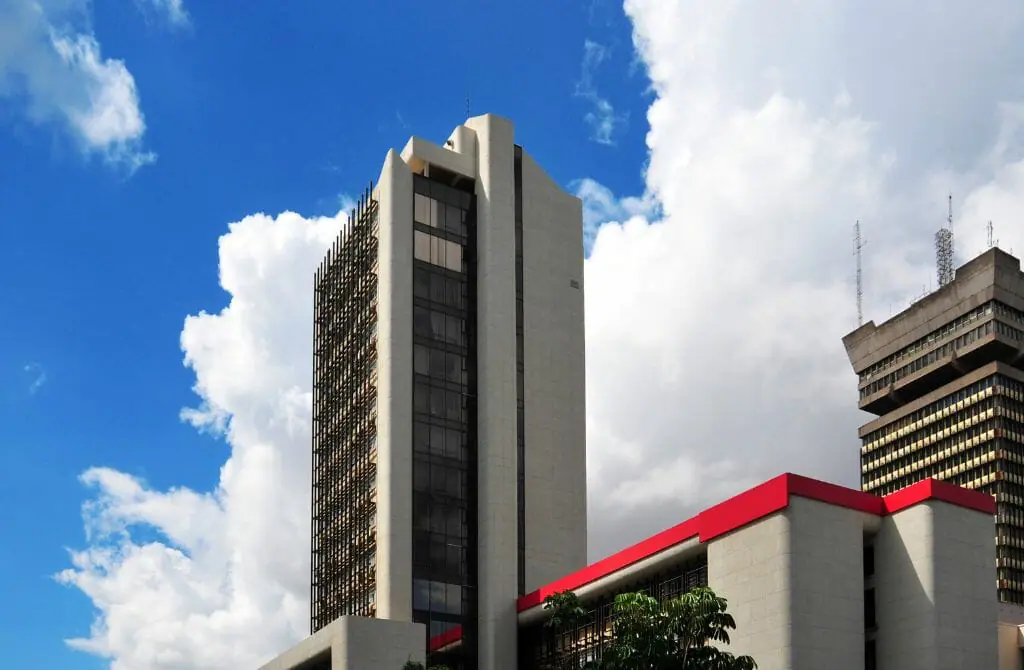
The LGBT Legal Situation In Zambia
LGBT rights in Zambia remain challenging, with significant limitations imposed on the community. It is crucial to understand the legal situation surrounding this issue in the country, both for locals and tourists.
Same-sex sexual activity is illegal in Zambia for both males and females, with severe penalties in place. Under the Zambian Penal Code, offenses such as “carnal knowledge against the order of nature” and “indecent practices between persons” are punishable, potentially leading to life imprisonment.
The Zambian constitution also addresses the matter of same-sex relationships. In 2010, the National Constitutional Conference added a clause specifically prohibiting marriage between persons of the same sex. Marriage is defined within the constitution as a union between two individuals of the opposite sex who are over 18 years old.
Furthermore, the Law Association of Zambia (LAZ) has stated that it is impossible to respect LGBT rights as long as the current legislation criminalizes same-sex acts. The situation also extends to those advocating for LGBT rights, as those individuals may face penal sanctions.
When it comes to gender identity, Zambia does not legally recognize non-binary gender identities. The right to change one’s legal gender is ambiguous, while equal age of consent and protection against discrimination are also lacking.
Given the complex legal situation, it is essential for both locals and tourists to exercise caution and remain vigilant. Situations can change rapidly, and information can become outdated. Therefore, it is advised to seek current advice before traveling. It is also beneficial to be aware of relevant LGBT advocacy groups that can provide assistance and guidance.
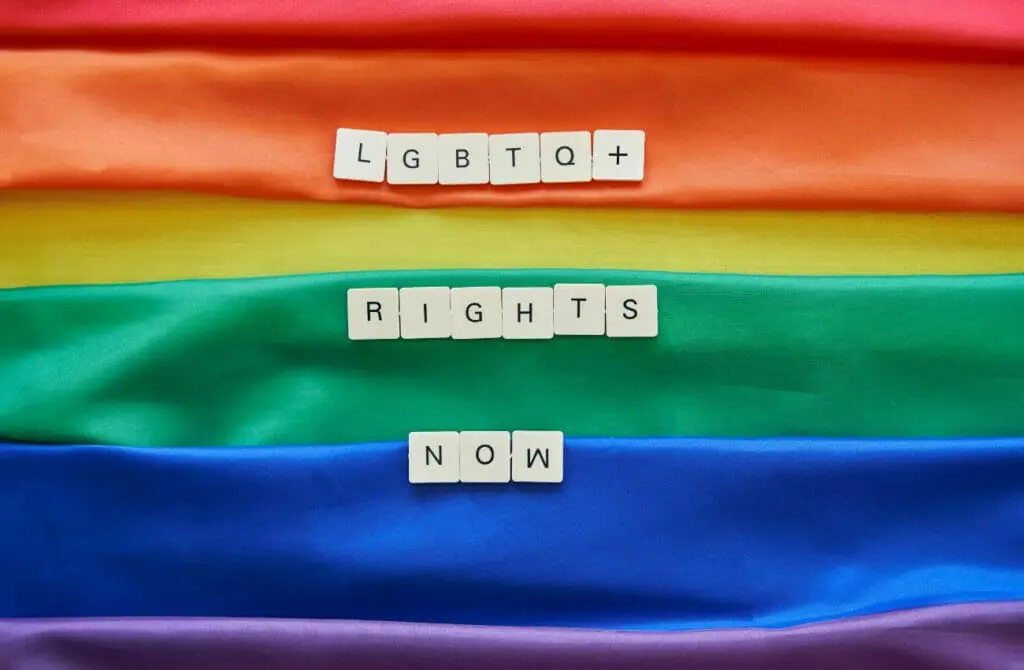

The LGBT Social Situation In Zambia
The social situation for LGBT people in Zambia remains challenging due to prevailing negative attitudes, discrimination, and the criminalization of same-sex sexual activity. Many members of the LGBTQ community face a range of risks, including violence, harassment, and social ostracization.
The country’s legal environment further compounded the issue, with laws often targeting sexual and gender minorities, resulting in a higher likelihood of arbitrary arrests and denial of rights.
Discrimination towards LGBTQ individuals extends to various aspects of life, such as education, employment, and housing. The lack of legal protection leaves LGBTQ Zambians vulnerable to unfair treatment, making it important for them to exercise caution in their daily lives. The situation may be more complex for local residents as compared to tourists, but it is essential for both groups to remain informed of the current social climate and relevant legislation.
Prominent religions in Zambia, such as the Catholic Church, also influence social attitudes towards LGBTQ people. However, emerging voices and advocacy groups, both within the country and internationally, are working to raise awareness and improve the human rights situation for LGBTQ individuals. It is vital for those affected to have access to the most up-to-date information and support, as attitudes and legal environments can change rapidly.
The impact of discrimination on the LGBTQ community also translates to increased vulnerability to public health issues such as HIV/AIDS. Stigma and limited accessibility to education, prevention, and healthcare services contribute to the challenges faced by LGBTQ Zambians in this area. Support organizations within the country are working to address these disparities and to provide necessary aid for affected individuals.
In Zambia, social media and other communication platforms contribute to both raising awareness and, at times, the dissemination of hate speech targeting the LGBTQ community. It is essential for those affected to leverage resources, build support networks, and navigate these spaces cautiously. This approach aligns with efforts to challenge social attitudes and create a safer environment for LGBTQ people in the country.
As the situation for LGBTQ individuals in Zambia remains precarious, it is crucial to remain vigilant and aware of changes that may impact the community. Support, information, and assistance from local and international advocacy groups can be instrumental in navigating the challenges faced by LGBTQ Zambians.
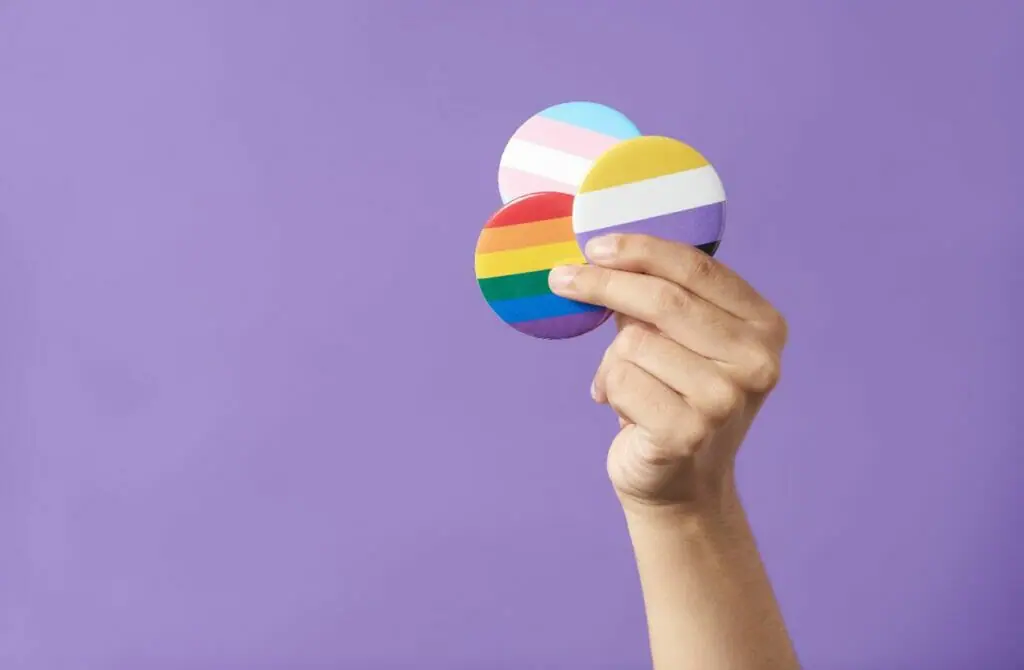
Trans Rights In Zambia
In Zambia, transgender individuals face numerous challenges related to their gender identity. Discrimination and intolerance are pervasive, and legal protections are often insufficient. Transgender people are not only in a vulnerable position within society but are also at risk when it comes to access to education, employment, housing, and healthcare services.
Local advocacy groups, such as the Zambian Human Rights Commission (ZHRC), are working to promote tolerance and acceptance for transgender individuals and to ensure their protection under human rights law. They encourage the government and broader society to respect the rights of all citizens, regardless of their gender identity or sexual orientation.
It is important for both local people and tourists alike to be aware of the challenges that transgender individuals face in Zambia. While the situation has improved in the past few years, it is essential to remain cautious, as circumstances can change quickly, and some individuals may exploit the vulnerability of the transgender community for their own gain.
For those seeking updated information on the situation, it is recommended to consult with local LGBT advocacy groups or international resources such as Human Rights Watch, OutRight Action International, or ILGA World. These organizations can provide current advice on the risks and potential protections for transgender people in Zambia.
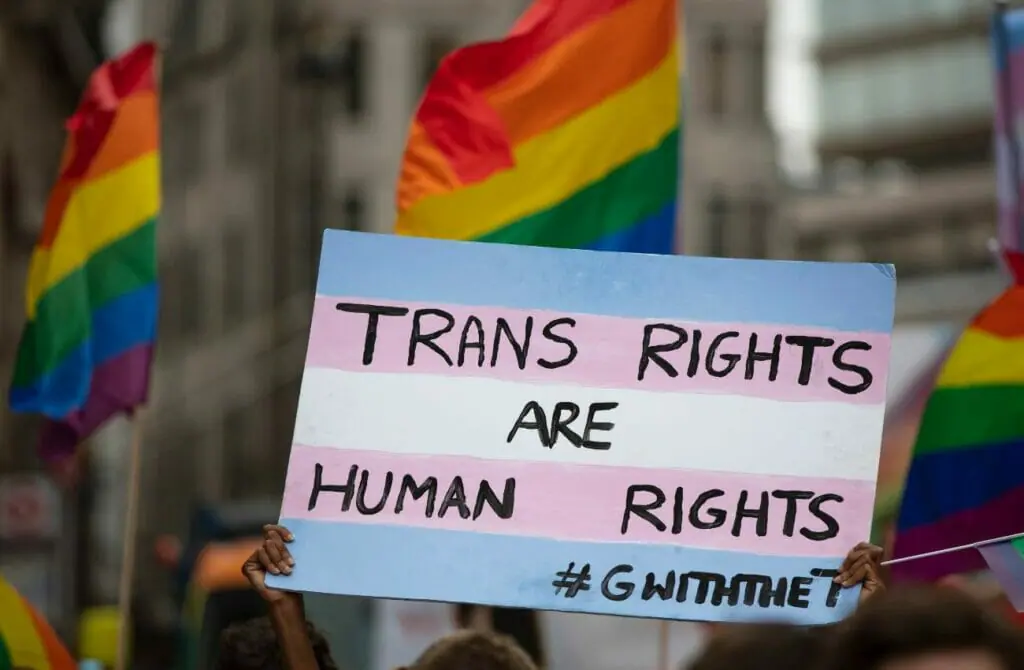

The Future For The Queer Community In Zambia
The future of LGBT rights in Zambia seems uncertain, as the country has restrictions on advocacy and same-sex relationships. The Zambian government does not permit advocacy of LGBT rights, and the freedom of expression or peaceful assembly on LGBTQI+ matters remains non-existent, according to the U.S. Department of State’s 2021 report.
Local LGBT people face precarious situations contrasted against tourists, as they often live in constant fear of arbitrary arrests, discrimination in education, employment, and housing, coupled with negative societal attitudes towards them. For those visiting Zambia, it is crucial to remain vigilant and cautious. Be aware that the situation might change abruptly, and information could become outdated. Always seek current advice before traveling.
Zambia’s existing laws prohibit same-sex sexual conduct, terming it as “against the order of nature,” and carry punishments of up to life imprisonment. This legal framework poses a critical barrier to the right to change legal gender and the future progress of LGBTQI+ rights in the country. The President of Zambia, Edgar Lungu, and other government officials like Foreign Minister Joseph Malanji have made statements that indicate a lack of intent to reform these laws in the near future.
However, there have been instances of the Lusaka High Court affirming the freedom of expression and certain NGOs pushing for change despite the government’s restrictions. These organizations face criticism and risk for advocating LGBTQI+ rights but play an essential role in the struggle for a more inclusive Zambia.
In the international arena, Zambia faces mounting pressure, especially from the Human Rights Council, to address its LGBTQI+ rights concerns. This pressure came to the forefront when the former U.S. Ambassador to Zambia drew attention to the harsh sentencing related to same-sex conduct in the country. The Zambian government’s response to such international concerns remains critical in shaping the future of LGBT rights in Zambia.
Looking forward, it would be helpful for locals and visitors alike to stay informed, engaged, and prudent when it comes to LGBTQI+ matters in Zambia. Remain up-to-date with local and international advocacy groups and human rights organizations, as they can provide valuable insights, support, and information to navigate the future of LGBT rights in Zambia in a professional and well-informed manner.
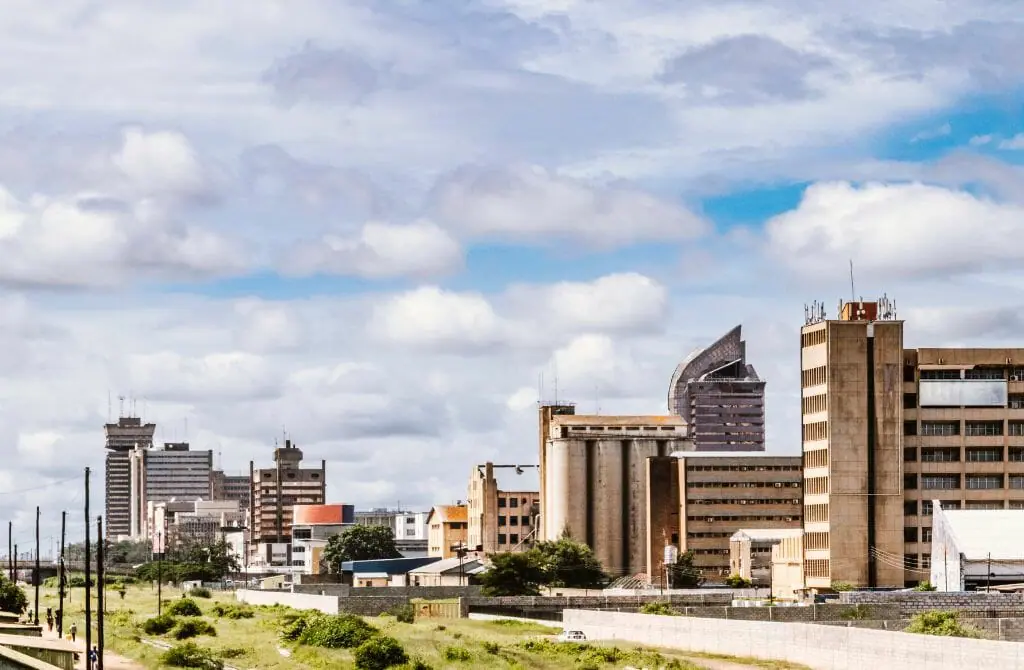
Protect Yourself While Travelling In Gay Zambia
As the situation surrounding LGBT rights in Zambia is highly sensitive, it is crucial for both local people and tourists to stay vigilant and be aware of the risks associated with being an LGBT individual in the country. Homosexuality is illegal in Zambia, with punishments ranging from arrests, detentions, and even life in prison. Therefore, it is essential to take precautionary measures and understand the legal implications of one’s actions.
The Zambian government has not shown support for the LGBT community, and acts of violence, discrimination, and arbitrary arrests remain issues faced by sexual minorities. Additionally, law enforcement and military personnel have been known to engage in human rights violations, such as forced anal examinations, community harassment, and abuse.
Although the Human Rights Commission has spoken on LGBTQI issues, progress in addressing these violations, particularly for members of the LGBT community, remains slow.
LGBT individuals, whether locals or tourists, must remain discrete about their sexual orientation and avoid displaying affection in public, given the prevalence of anti-gay bias and the risks of violence. Instances of persecution and discrimination can come from civilians, police, or other authorities, so it is important to prioritize safety and security.
For protection and support, individuals can seek out and maintain contact with LGBT advocacy groups or human rights organizations that focus on the well-being of the LGBT community. These groups can provide the most up-to-date information on the current situation in Zambia. Be aware, however, that situations can change rapidly, and information may become outdated. Always seek current advice before traveling or navigating sensitive topics as an LGBT person in Zambia.
In conclusion, exercising caution, remaining vigilant, and staying informed through trusted resources are key in safeguarding the rights and well-being of LGBT individuals in Zambia, given the ongoing challenges faced in this context.
